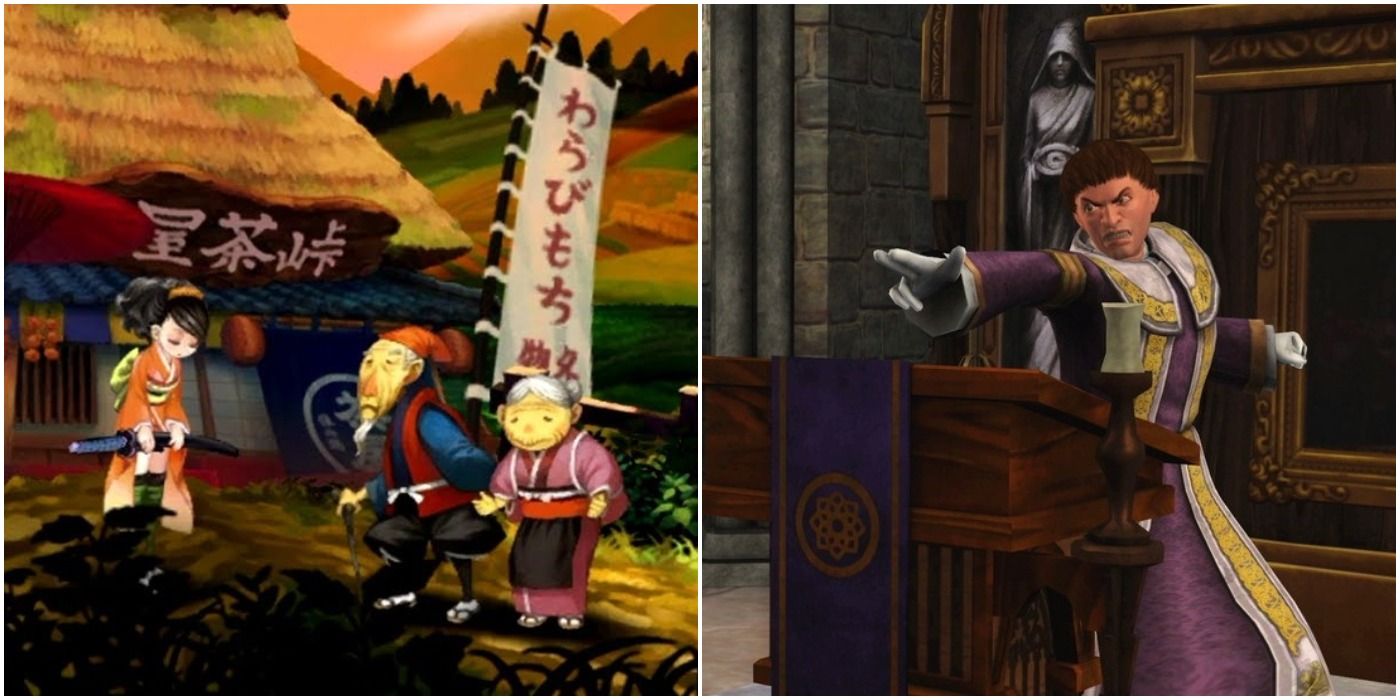
Among the most enticing things about role-playing games is how they place players into the world more intimately than other titles. You create a character, choose how that character progresses, and change the larger narrative with those choices. Although this type of game has explored several genres, one that it usually avoids is history. That's a genre usually reserved for RTS titles, and it's easy to see why. Historical events are set in stone. Influencing them too drastically sacrifices authenticity.
RELATED: The 10 Most Historically Accurate Video Games Ever Made, Ranked
Some RPGs, however, buck this trend. They let players develop their characters while maintaining historical accuracy. That's not an easy feat, and it's definitely worth celebrating.
10 Assassin's Creed Valhalla
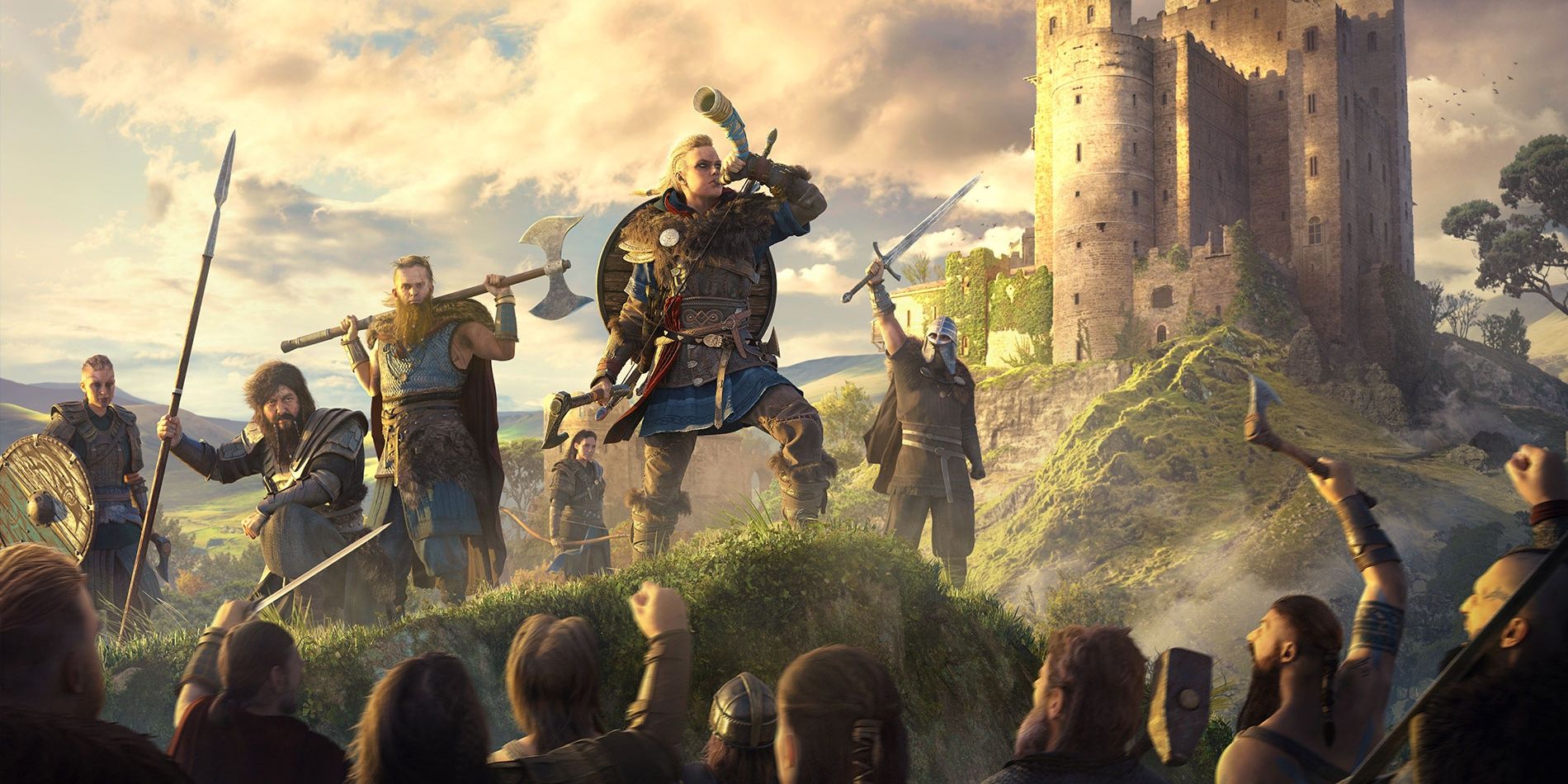
Vikings are a popular trend right now, so it was no surprise when Ubisoft dove deep into the culture and history of these Norse raiders for their Assassin's Creed series. Even less surprising are the liberties that the developers take. The anachronistic dialogue and supernatural elements that pervade the franchise are still present here.
That said, a number of elements in Valhalla stem from actual history despite how fantastical they sound. The Blood Eagle, for example, was a form of execution for royal prisoners, but it gets far more obscure. One side quest involves a mysterious pair of green children, which dates back to an old English folktale. True, there's a lot here that Vikings and The Last Kingdom did better, but Valhalla has more than a few surprises sure to please history buffs.
9 Far Cry Primal
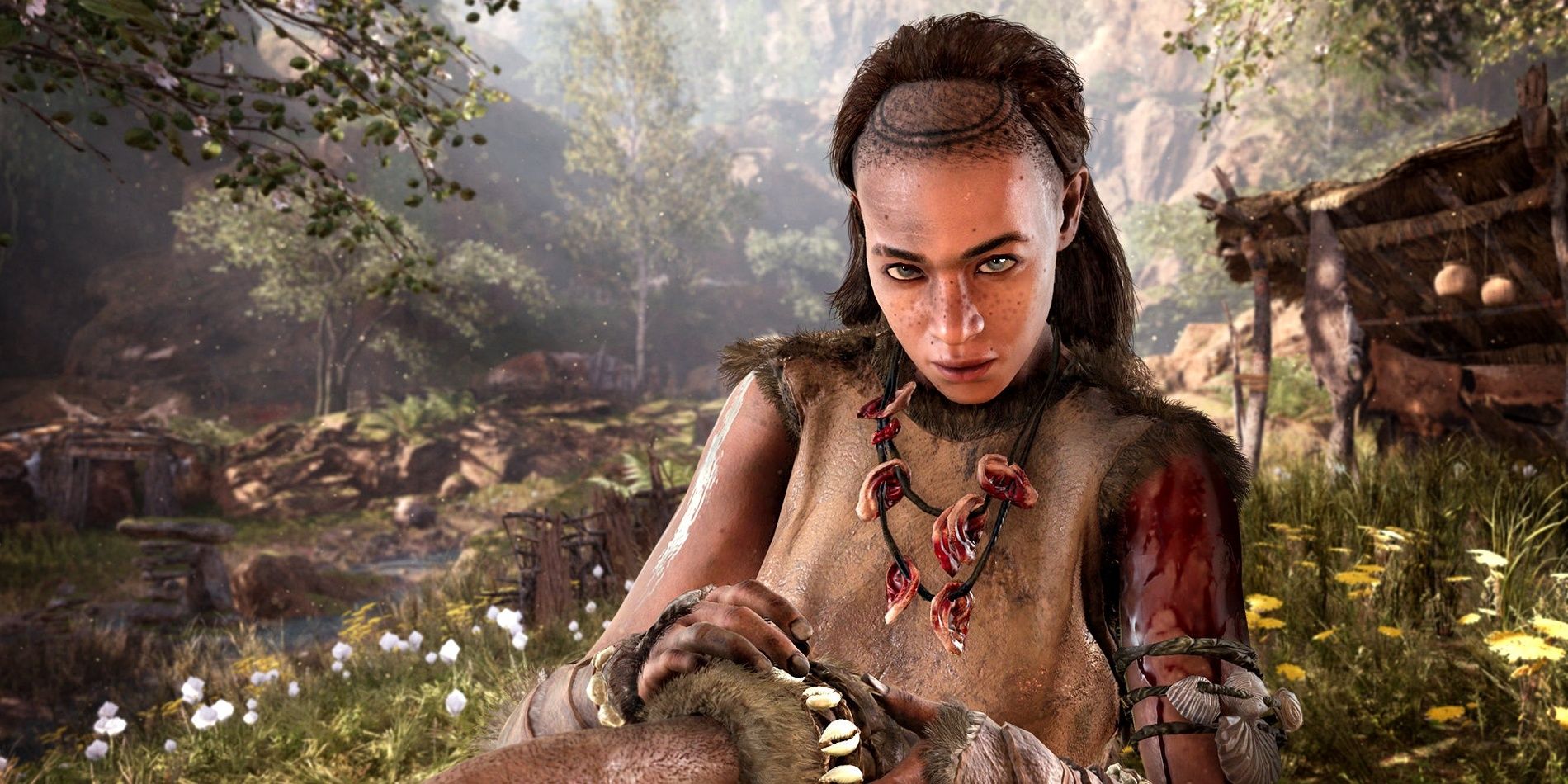
One wouldn't normally associate a Far Cry game with accuracy or authenticity of any kind, especially one that involves bending prehistoric animals to your will. However, this offshoot from the main series has more attention to detail than meets the eye.
The developers used real proto-European language as the foundation for the tribes' speech. They worked with linguists and anthropologists to develop this language and its evolution, determining how it would have changed through the centuries and what it would have sounded like in its earliest stages. Other games would have settled for gibberish and called it a day. Props to Primal not settling for stereotypical caveman speech.
8 Muramasa: The Demon Blade/Rebirth
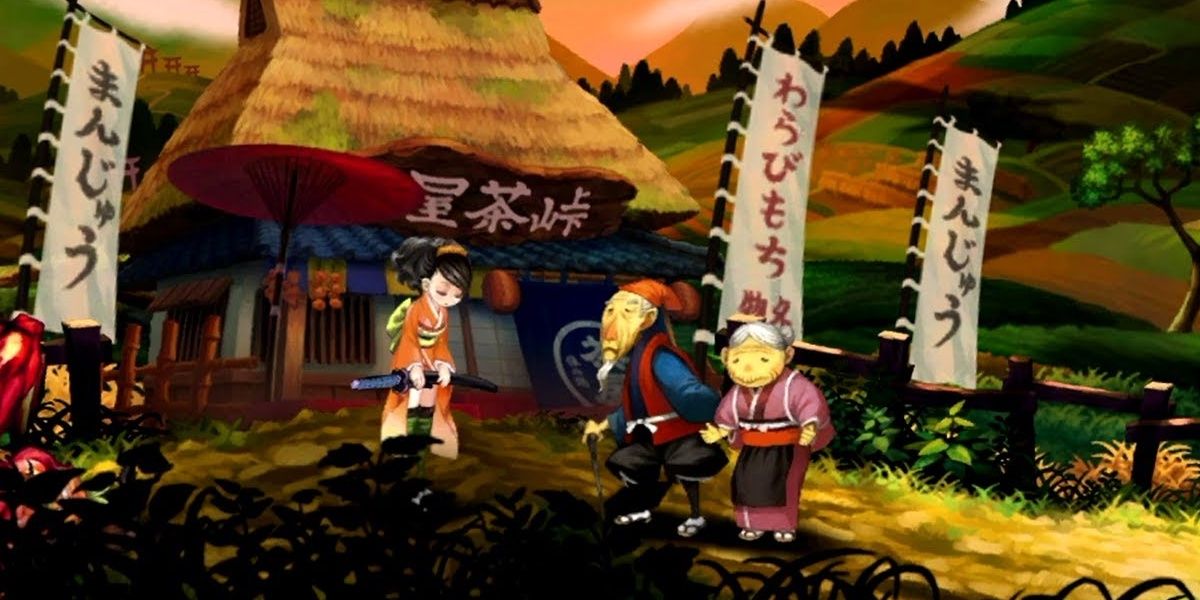
At first glance, this seems like a Japanese fantasy side-scroller like Ninja Gaiden. The picturesque art style and thrilling gameplay would support that assumption.
What players might not know is that Muramasa takes place during the real-life Edo period of Japanese history. The oppressive reign of shogun Tokugawa Tsunayoshi serves as the narrative foundation, as it's his quest for power that leads to the emergence of the Demon Blades, forged by esteemed swordsmith Sengo Muramasa. Granted, these blades probably didn't hold magical powers, but rooting them in actual historical figures is still noteworthy.
7 The Sims Medieval
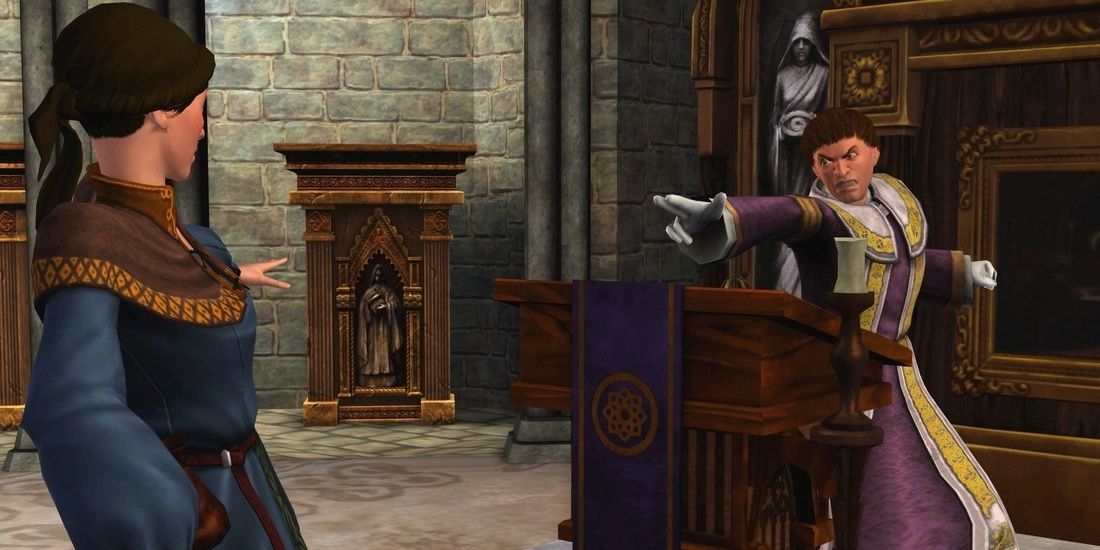
What's immediately noticeable about this Sims title is that it incorporates more role-playing than other entries. Completing quests like this is something out of World of Warcraft or Elder Scrolls.
RELATED: The 5 Best & Worst Things To Happen To The Sims Franchise In The Last Decade
The game nevertheless comes with many factors standard for The Sims. For instance, designing buildings and satiating people's hunger are regular issues that players must deal with. The series' societal detail pops up in the number of professions at the time and how some tasks require joint efforts. A sickness may call for a physician and a priest, or furthering folks' education might involve the monarch and a merchant. It charges gamers with the logistical issues of building a kingdom during medieval times.
6 Assassin's Creed Origins
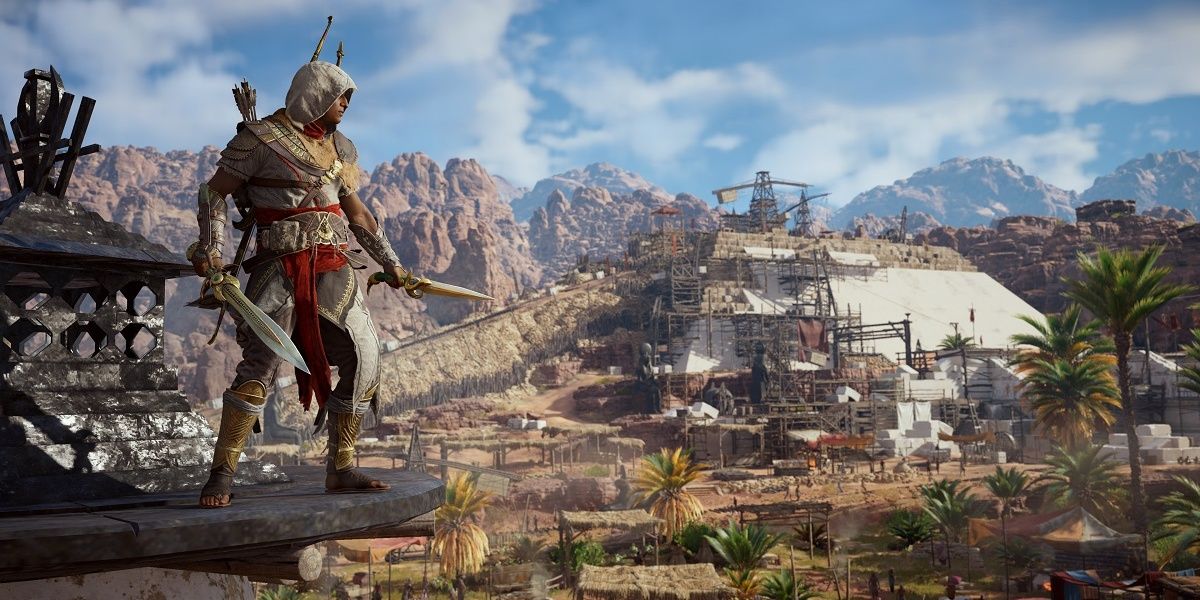
The Assassin's Creed games have always hung their hat on history, letting players traverse iconic locales in a plethora of time periods. Origins, however, was where the franchise dialed up the role-playing aspects. Gamers must level up their characters through quests and side activities, and they must use their accumulated stats and equipment to triumph in the overhauled combat system.
Although the title still takes liberties with the period, they're nowhere near as crazy as Odyssey or Valhalla. What players are left with is a relatively restrained RPG with the immaculate attention to architectural detail fans have come to expect.
5 Sid Meier's Pirates!
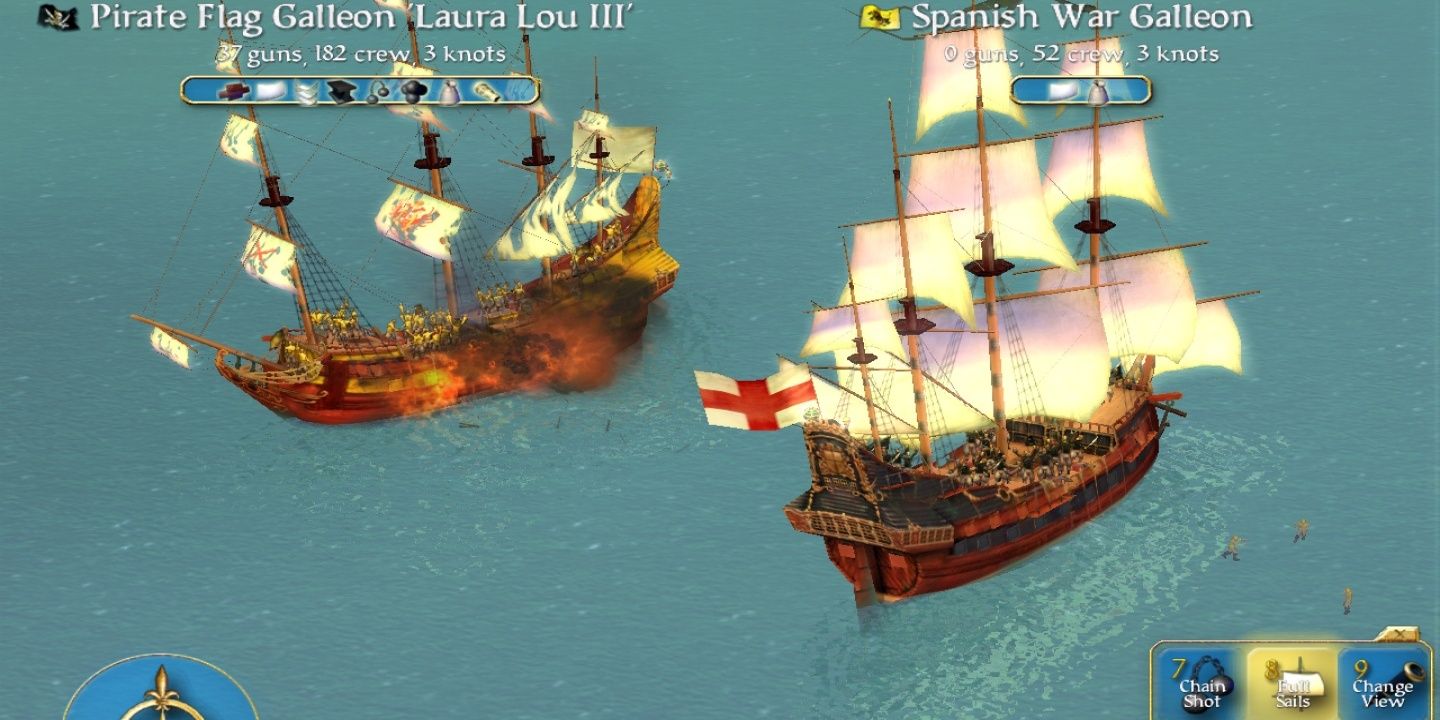
The Sid Meier games are often lauded for the detail they put into recreating societies and letting players influence their growth. Pirates! continues that tradition for better or worse, placing players in a simulation where the tongue-in-cheek aesthetic masks its more methodical gameplay.
Success comes from building a crew and plundering the Caribbean in search of revenge. Said crew is recruited in ports, but they must be kept happy and healthy on the high seas. Otherwise, they'll mutiny and leave you in a dingy. Players additionally earn wealth and influence by attending parties and trading goods. Sailing depends on the winds, and this becomes essential during naval battles, where ships wield several cannon types for different purposes. That's not even counting treasure hunts and land raids on towns. Being a pirate in those days required balancing a plethora of variables, and it was often much more mundane than the movies make it out to be. Who knew?
4 The Port Royale series
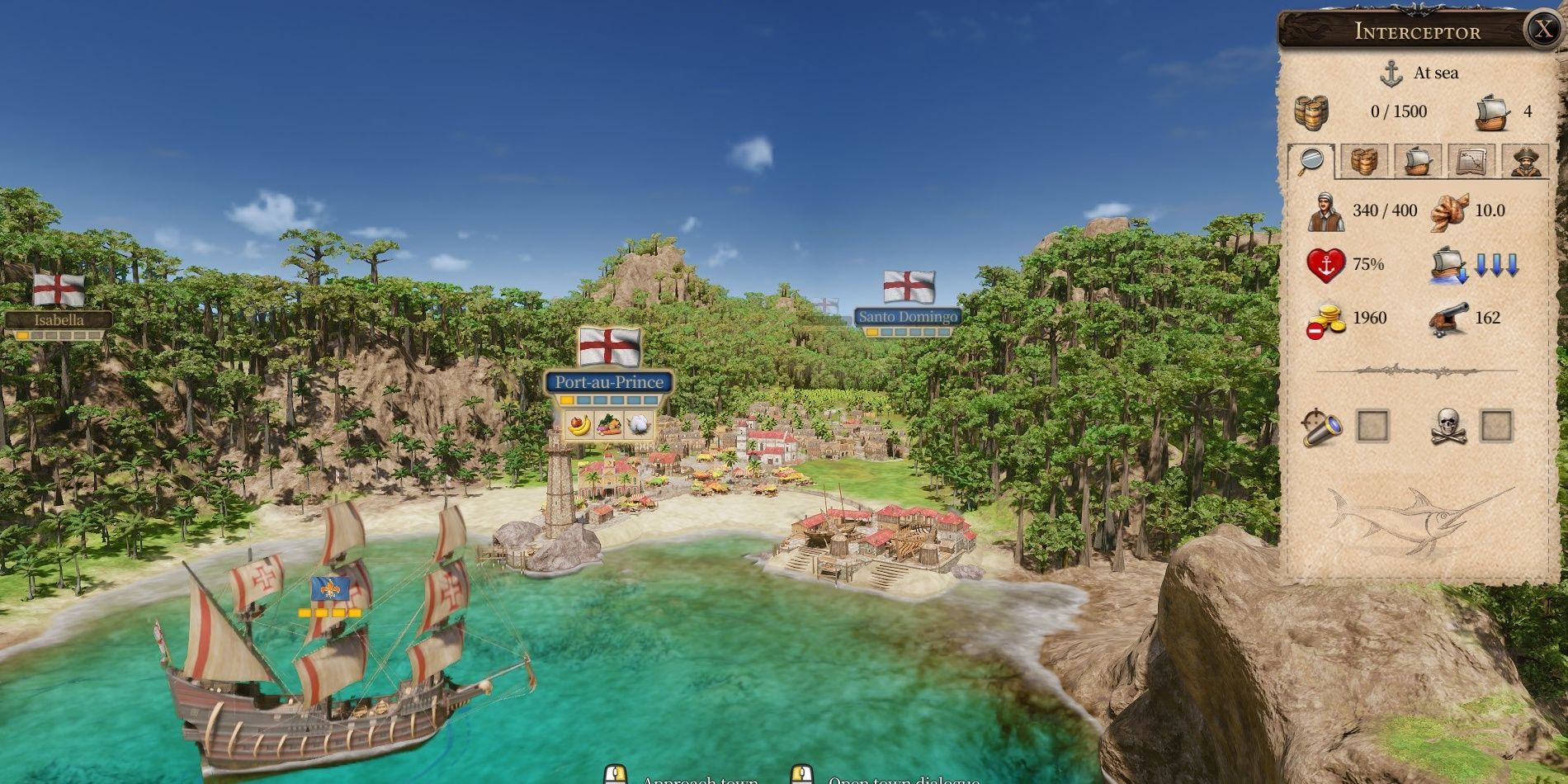
While other Caribbean games simulate being a pirate, the Port Royale series makes the player into a businessman. Sure, a few battles unfold on the high seas, but that is not the focus. Instead, gamers must build and manage entire economies in a sprawling strategic undertaking.
They select a career, ally themselves with a nation, and expand themselves across the colonial world. Depending on their path, they can forge friendships with towns (eventually building their own), fight for king and country as privateers or trade goods to line their pockets. This can already sound overwhelming to some, however, gamers also have to contend with variables like trade routes, weather, and hostile ships, be they pirates or other nations. It's a game of risk vs. reward inherent in any business venture. Port Royale takes all the little details of Sid Meier's Pirates! and applies them to other professions of the time.
3 Red Dead Redemption 2
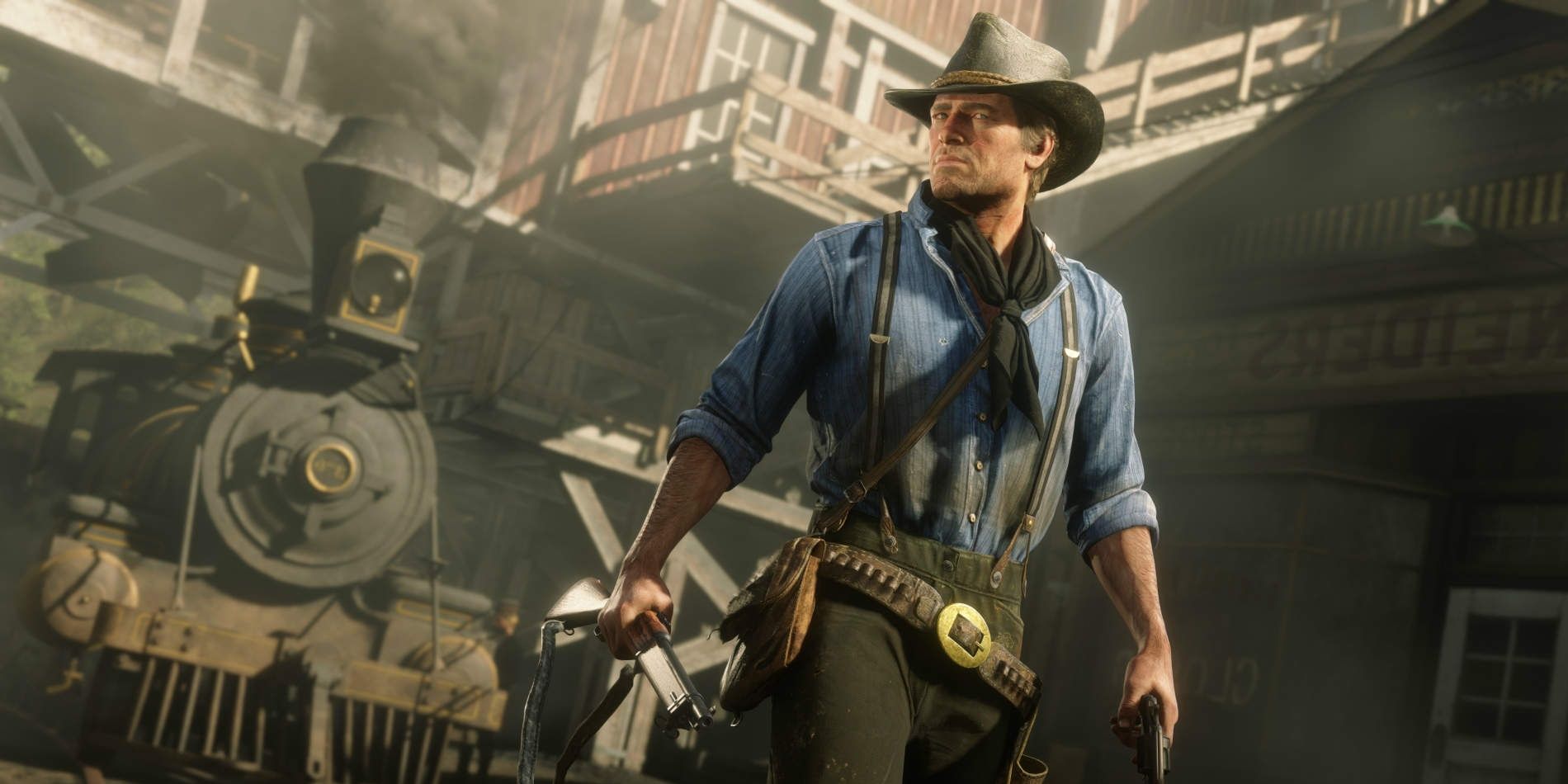
The Old West has never been this vibrant. Furthermore, Red Dead Redemption 2 portrays the end of such an era with an all-encompassing majesty that's unparalleled. Just exploring the environment shows this. People of varying professions and social circles routinely clash. Next-century innovations are cropping up, disturbing the dirty simplicity of the past.
RELATED: Red Dead Redemption 2: 10 Secrets About The Setting That Most People Don’t Notice
The added RPG elements only strengthen this immersion. Eating, customizing and cleaning weapons, and caring for one's horse were all real issues that required attention, whether you were a ruthless gunslinger or a humble farmer. The developers could have made a simple homage to spaghetti westerns. Instead, they went for a more realistic approach, and the game is all the better for it.
2 Ghost of Tsushima
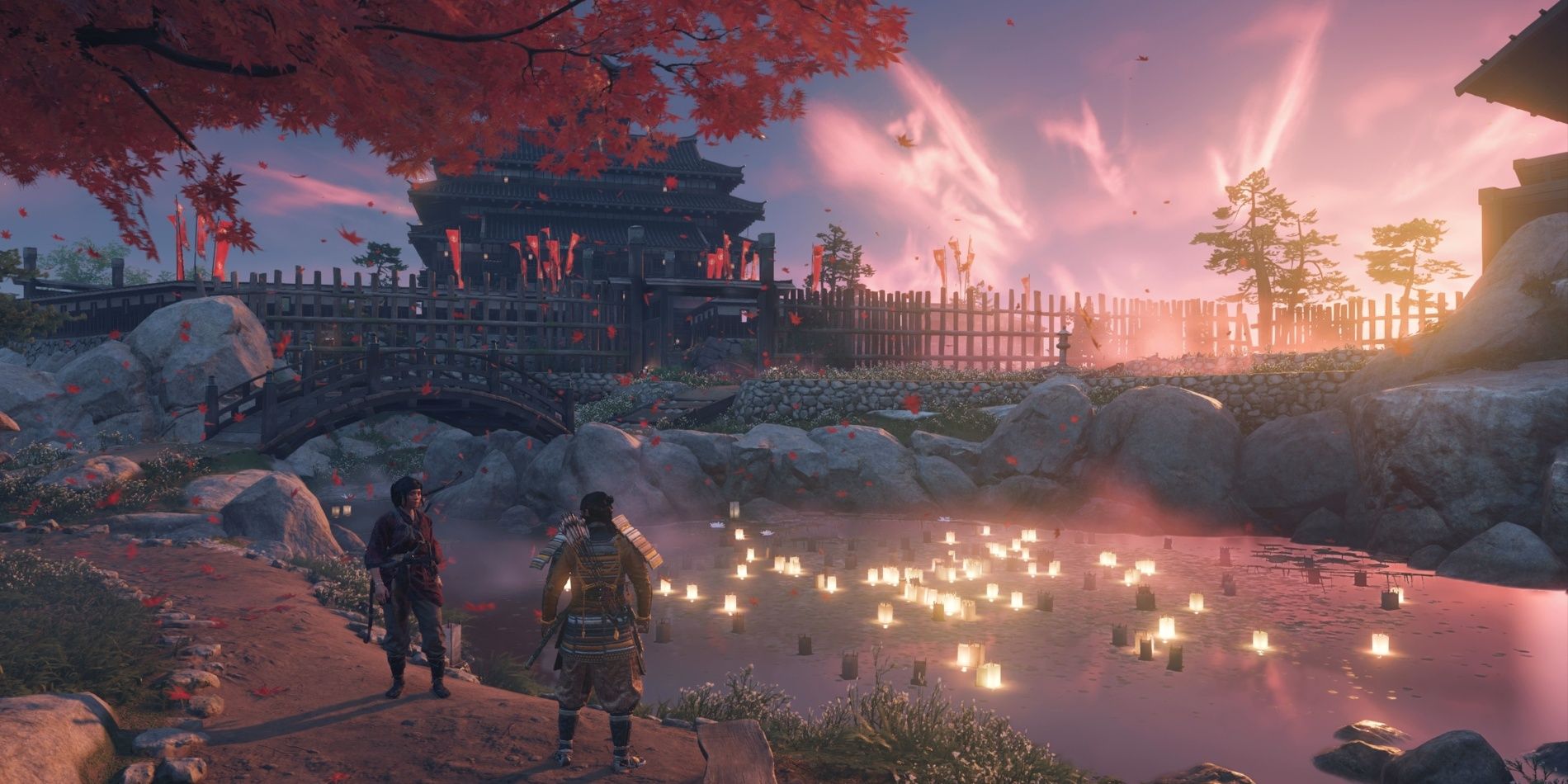
Few people expected Sucker Punch to follow the stylized comic book exploits of their Sly Cooper and Infamous titles with a game that harkens back to the samurai flicks of yesteryear. Even fewer expected it to be this deeply rooted in history.
Ghost of Tsushima not only uses the real Mongol invasion as its dramatic backdrop, but it utilizes Japanese culture to inform its character-building, such as including different stances for different styles of samurai. Jin Sakai must expand his narrow horizons to drive back the Mongol menace, and the player must wade into this culture to win. It's a fluid marriage of gameplay and historical reverence.
1 Kingdom Come: Deliverance
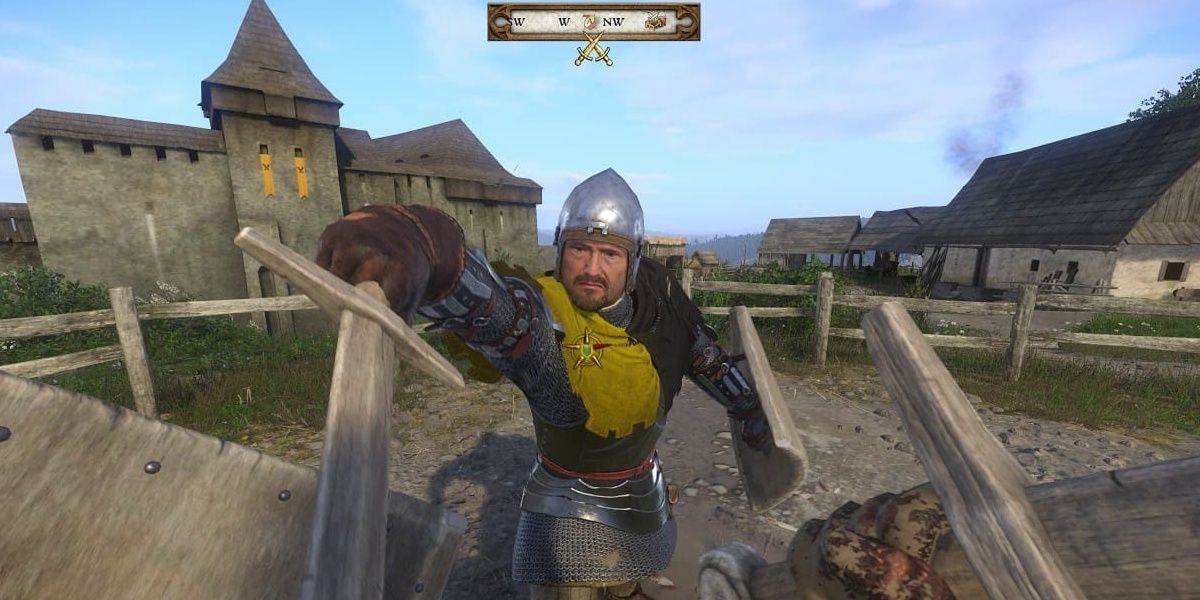
What might initially appear to be an Elder Scrolls clone couldn't be further from it. Kingdom Come: Deliverance sets out to portray medieval Bohemia during a brutal struggle for royal power and an impending invasion by foreign conquerors. So many things about this setting are brilliantly recreated, from the clothing to the culture, social classes, real-life structures (still standing today), and the utter lack of Hollywood grace surrounding it all.
Protagonist Henry of Skalitz isn't a man of action. Gamers must master the in-depth role-playing system and practice the various attributes to steadily build this bum into a warrior. He's not particularly powerful or any kind of "chosen one;" he's just a normal guy. This arguably makes Kingdom Come's setting more engrossing than its peers, as it drops the player into the breathtaking open-world not as a savior, but as just another citizen. This labor of love is truly one of the most historically rich RPGs ever made.
NEXT: The 10 Craziest Alternate History Timelines Seen In Video Games

